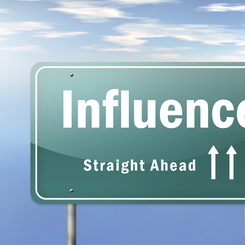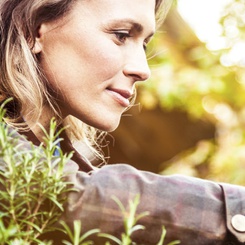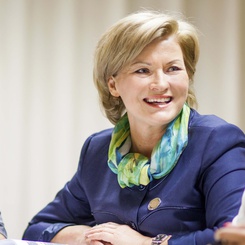A number of actors build representations of territories, and they have varying types of legitimacy: it’s no wonder then that these representations frequently lead to conflicts related to environmental as well as social and economic issues.
Today, territorial consultations are regularly organized – either to comply with regulations, or as a voluntary way for project leaders to initiate dialogue between stakeholders and the general public. But engaging in this kind of consultation takes courage, not only on the individual level, but also on the part of public and private developers, local authorities and associations, as well as public and private decision-makers.
By “courage”, we’re not about the military courage that Danton spoke of in 1792 in regards to the military defense of the country, but rather what Edgar Morin would go on to describe much later: Courage requires a desire to build something that is relevant to the world today; it’s not about looking for an ideal society, which would be "grotesque since the world is always changing. Courage is to design a pathway through this change that avoids disaster."
Courage at the individual level
If many texts on the subject of territorial collaborative law and procedures have been developed in France and abroad, why does working in a collective context still take courage at the individual level?
To really work together – and not just give an overall impression of collaboration – one must conceive a project collectively through discussions with stakeholders and the general public, allowing everyone to deliberate and influence decisions on the project. While working collectively, one should have an open attitude towards differences of opinion, even if the difference is radical on certain subjects. One should also listen and hear beyond the positions expressed, and refrain from imposing a point of view or submitting to another, in order to co-construct a project that will have economic, social and environmental value. Consultation and public debate procedures should offer objective support, and not be an end in and of themselves; they should offer the keys to renewing and adapting the consultation process so that the exchanges can be as successful as possible.
Courage at the organizational level
Why should organizations public or private, associations or local authorities be bold as they enter into consultative debates with other stakeholders and the general public?
Over the short-term, territorial consultations require the mobilization of both human and financial resources in order for these organizations to work in new ways, changing their relationships with external partners, as well as the relationships between the different parts of the organization’s internal structure. And ultimately, investing in these short-term evolutions brings benefits to the medium-term by not only adding legal, but also social legitimacy to projects.
In addition, as public finances become more and more restrained, and there is a greater than ever need for environmental sensitivity, difficult choices must be made. Therefore, this kind of investment is increasingly necessary for organizations. Indeed, environmental matters can’t be conceived in opposition to economic and social issues. These three issues should be worked through together
Courage is needed in organizations at the individual and collective levels in order to define and take on tasks and determine processes that will be appropriate for consultations between stakeholders and the general public . Only these changes will allow us to limit the conflicts inherent to land use, and avoid the acted violence that comes at the expense of everyone and the community.
CONNECT will conduct research on precisely these transformations of the interactions of organizations with their environment and in themselves
Courageous decision-makers
Why should decision-makers who submit their projects to consultation be courageous?
Consultations are embedded in the decision-making process. They can produce a co-construction of proposals to be submitted to the decision-makers, i.e. public and private project leaders, local authorities, and governments, according to the types of projects.
But consultations ‘results don’t have the status of final decisions. After a genuine consultation, decision-makers need to have the courage to make decisions, i.e. to implement the project at stake or not, to revise it or not. They should make those decisions in a reasonable delay and account for why they have or have not followed the proposals made in consultation.
The CONNECT center will conduct research on the dynamics that link the consultations with the decision making processes, not only in France but also drawing on international research and experience. CONNECT aims to participate in these individual, organizational and societalevolutions in the field of territorial decisions.
A first courageous project: “Consult effectively; decide with trust - Consultation guarantee, which role for the third parties-guarantors?”
CONNECT is a member of the steering committee of a multi-partner action-research project that resulted in the proposal of a base of good practices regarding third parties-guarantors of territorial consultations. Indeed, how to better define the missions of guarantors and, more broadly, the mechanisms that foster trust between stakeholders and the general public, is a major challenge for all those who believe in the need for dialogue between all planning actors. The project will continue through the organization of an international research seminar that will facilitate exchanges between researchers and practitioners
The Project Steering Committee is composed of: Sandrine Artis, Syndicat des Transports d’Ile-de-France ; Brigitte Badina et Jeanne Cartillier, Grand Lyon ; Marjorie Bastard et David Landier, Réseau de Transport d’Electricité ; Olivier Bernard, Bordeaux Métropole ; Christophe Beurois, Pierre-Yves Guihéneuf, et Judith Ferrando, Institut de la Concertation ; Loïc Blondiaux et Jean-Michel Fourniau, Groupement d’Intérêt Scientifique Démocratie et participation ; Céline Braillon, Commissariat général au développement durable du MEDDE ; Winston Brugmans et Damien Mouchague, , Conseil de Développement Durable (C2D) de Bordeaux Métropole ; Laurence de Carlo et Jean-Marc Dziedicki, , Centre CONNECT ESSEC; Albane Gaspard et Eric Plottu, ADEME; Thierry Gissinger, Fondation de France ; Joana Janiw, Association Internationale pour la Participation du Public branche française (AIP2 France) ; Laurence Monnoyer-Smith, Commission Nationale du Débat Public ; Luc Picot, association Décider Ensemble ; Julie Taldir, Réseau Ferré de France.









